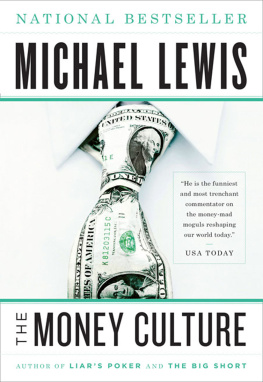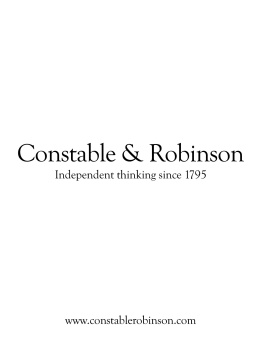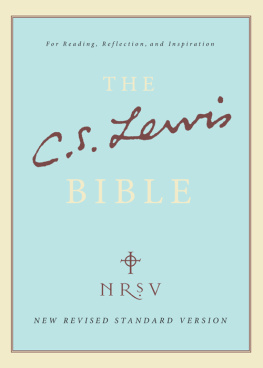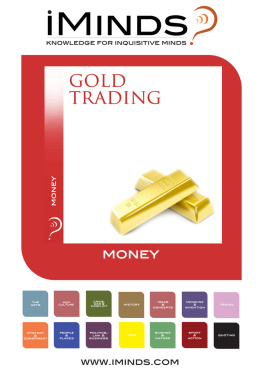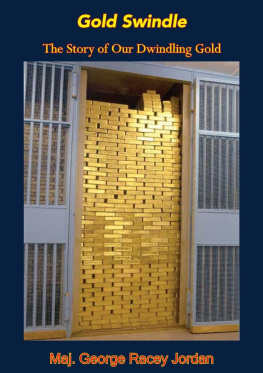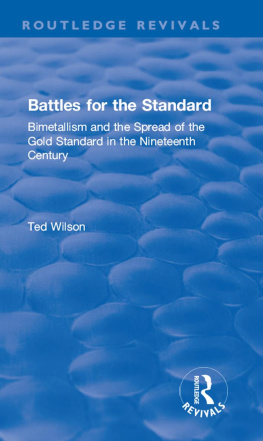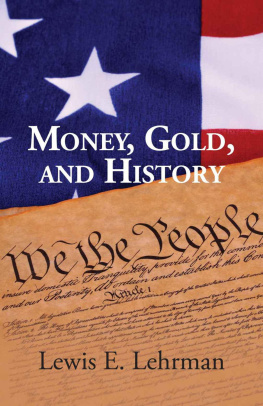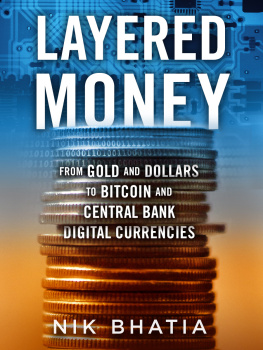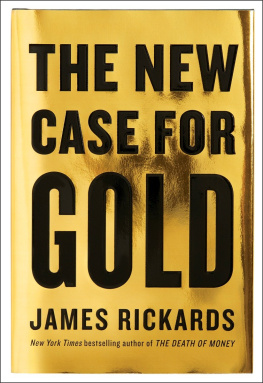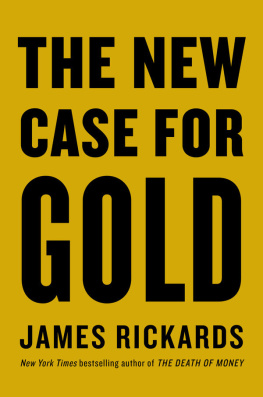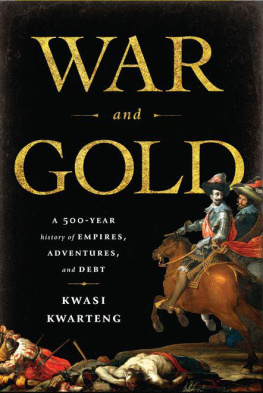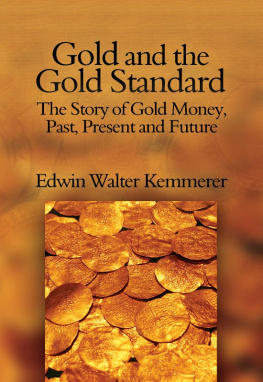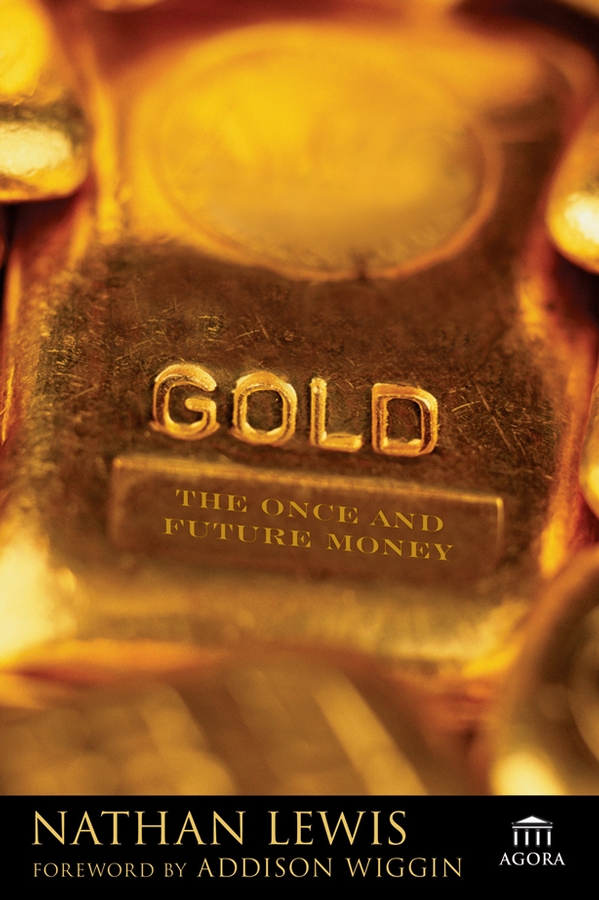CONTENTS

Copyright 2007 by Nathan Lewis. All rights reserved.
Published by John Wiley & Sons, Inc., Hoboken, New Jersey.
Published simultaneously in Canada.
Wiley Bicentennial Logo: Richard J. Pacifico.
No part of this publication may be reproduced, stored in a retrieval system, or transmitted in any form or by any means, electronic, mechanical, photocopying, recording, scanning, or otherwise, except as permitted under Section 107 or 108 of the 1976 United States Copyright Act, without either the prior written permission of the Publisher, or authorization through payment of the appropriate per-copy fee to the Copyright Clearance Center, Inc., 222 Rosewood Drive, Danvers, MA 01923, (978) 7508400, fax (978) 6468600, or on the web at www.copyright.com . Requests to the Publisher for permission should be addressed to the Permissions Department, John Wiley & Sons, Inc., 111 River Street, Hoboken, NJ 07030, (201) 7486011, fax (201) 7486008, or online at http://www.wiley.com/go/permissions .
Limit of Liability/Disclaimer of Warranty: While the publisher and author have used their best efforts in preparing this book, they make no representations or warranties with respect to the accuracy or completeness of the contents of this book and specifically disclaim any implied warranties of merchantability or fitness for a particular purpose. No warranty may be created or extended by sales representatives or written sales materials. The advice and strategies contained herein may not be suitable for your situation. You should consult with a professional where appropriate. Neither the publisher nor author shall be liable for any loss of profit or any other commercial damages, including but not limited to special, incidental, consequential, or other damages.
For general information on our other products and services or for technical support, please contact our Customer Care Department within the United States at (800) 7622974, outside the United States at (317) 5723993 or fax (317) 5724002.
Wiley also publishes its books in a variety of electronic formats. Some content that appears in print may not be available in electronic books. For more information about Wiley products, visit our web site at www.wiley.com .
Library of Congress Cataloging-in-Publication Data:
Lewis, Nathan K., 1971
Gold : the once and future money / Nathan Lewis.
p. cm.
Includes bibliographical references.
ISBN 978-0-470-04766-8 (cloth)
1. Monetary policy. 2. Business cycles. 3. Gold standard. I. Title.
HG230.3.L48 2007
332.4'042dc22
2007005000
FOREWORD
Not long ago, on a plane from Paris to Boston, we had the fortuitous occasion to sit next to one of the faithful: an economics professor from Harvard, whose office sat across the hall from Greg Mankiw, then chairman of the presidents Council of Economic Advisers, and who is a neighbor of former IMF chief economist Ken Rogoff. He claimed to have been recruited, at one point, by the Federal Reserve chairman Ben Bernanke to teach at Princeton.
A diminutive man of French descent, the professor almost immediately set upon chatting up the woman sitting on his left. She, it turned out, was an executive with Genzyme, the biotech firm.
Having discovered he was an economics professora fact he was only too happy to revealshe wanted to know if offshoring was going to pose a serious threat to wages in the biotech business. Ah, to some extent, he replied, but I wouldnt worry about it... the recovery is under way, and the jobs picture will improve dramatically very soon.
As an editor and the publisher of the Daily Reckoning ( www.dailyreckoning.com ) we could not resist. I couldnt help overhearing your comment, we blurted out, despite our best efforts not to. Do you really think jobs are going to reappear? Seriously? Even with public and personal debt loads going through the roof?
What ensued wasnt pretty (especially since we were taking liberal advantage of Air Frances free wine policy on the flight).
The currency markets dont like the federal deficit, so the dollar is falling, correct? we began our circular argument. That is right, came the reply.
A falling dollar cancels out gains by foreign investors, true?
Right again...
And foreign investment is needed to finance the trade deficit. So if the dollar continues to fall... interest rates will have to rise in order to keep foreign investors interested?
Yes...
If interest rates rise, wont that impede job growth?
Indeed...
Likewise, we continued, gloriously entertaining visions of Socrates in our head, if an increasing money supply starts showing up as inflation in the CPI, wouldnt that cause the Fed to raise interest rates?
Oui, bien sr . But inflation is still low. And the Fed must stimulate job growth. They have a thorie : It is called the Helicopter Theory...
Bernankes suggestion to throw money out of helicopters?
Yes, that is it... He looked at us quizzically. You know him? Because I know him...
No. I dont know him, we replied.
He is very smart. The Japanese could have used the Helicopter Thorie... we dont need it... we only need the jobs... We could tell he was getting impatient... clearly, he thought we just didnt get it.
We are all agreed, he continued (meaning his colleagues in the economics profession, we assumed), on how the economy works. Now we only debate how much the government should intervene and goose the economy.
But once you goose the economy in the United States, arent jobs actually showing up in India and China at lower wages? Wont any new jobs in the United States have to be competitive with those wages, effectively mutating the jobless recovery into the wageless recovery? The Genzyme exec squirmed in her seat a little.
Besides, we tried again, at some point, wont the government, regardless of the party, have to raise taxesor, better yet, cut spendingin order to deal with the deficit, both of which could effectively put an end to the stimulus package? And with no stimulus, where will the jobs come from? And what about the effects of a declining dollar on wages?
Mister Wiggin, my work is mostly on the theoretical end of things...
Well then, theoretically, where will the jobs come from?
Mister Wiggin, I leave the implementation to other people. And now, if you forgive me, I have a lecture to prepare for...
We tried to put on a movie, but our personalized monitor was broken. As we left the plane... after several hours of silence and polite nudges on the arm rest... we scribbled an e-mail on the inside of the French copy of one of my books and pressed it into his hand.
Curiously, he never responded.
Since the publication of my book, The Demise of the Dollar... and Why Its Good for Your Investments , in 2005, Ive wanted to write a follow-up book on the demise of the gold standardand the curious, often disastrous, impact it has had on the economies of many nations. I began The Demise of the Dollar with an account of (then) President Nixons devastating decision in 1971 to dismantle the Bretton Woods exchange rate system and usher in the age of the Great Dollar Standard era in which the dollar is backed by the full faith and credit of the U.S. government, a system that conveniently allows the government to print more money whenever it needs itand gives control of the economy over to the capriciousness and arrogance of those whose work is merely theoretical.
Gold: The Once and Future Money is the book I wanted to write. In this delectable tome, Nathan Lewis describes the booms, the busts, the bubbles, and the crises in the economies of dozens of countries, from centuries ago to the present day. It is a romp through history, illuminating along the way money in all its formsfrom wampum and shells to silver and goldand details the catastrophic effects of inflation, deflation, floating currencies, and every kind of tax a government functionary could dream to impose on an economy. It highlights the folly of human beings throughout history who think the economy is but a machine to be tinkered with and fine-tuned like a Bentley, or worse, a rusty Yugo. Above all, Gold: The Once and Future Money reveals truth. As the late Ferdinand Lipps wrote, The modern gold standard [of the nineteenth century] evolved naturally and was not the result of any conference, but rather the product of many centuries of experience and practice. It grew step by step, almost by accident, through its own force and because of the logic and experience gained with debasement of currencies in the past. The United States dollar circa 2007 and beyond is not likely to escape the inevitable march of history. The story of humanity suggests we will see a new and improved gold standard once again. Nathan Lewis helps us understand how.


